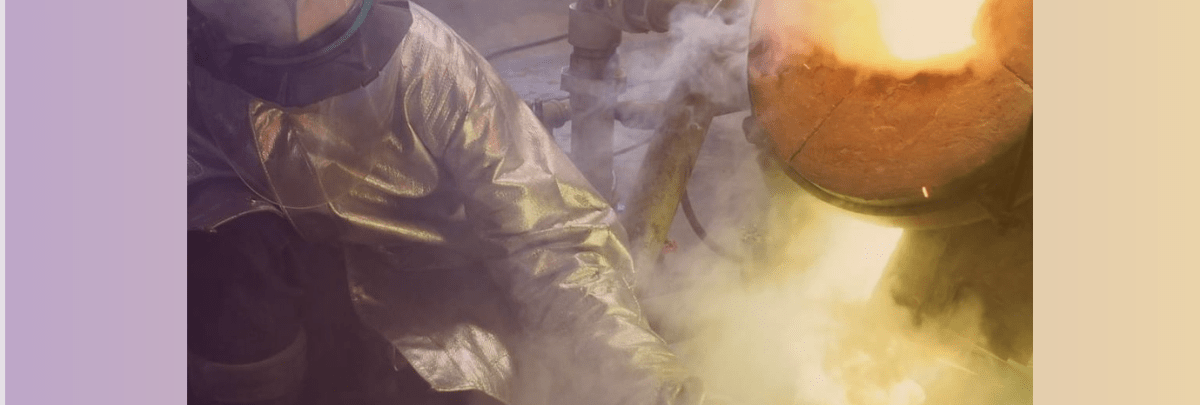Foundry 4.0 Center inspires a manufacturing technology MS alum to return for his curriculum and instruction EdD
Foundry 4.0 Center inspires a manufacturing technology MS alum to return for his curriculum and instruction EdD
Amid the industrial drumming of sand printing machines and the click-clack of people excavating molds at the UNI Foundry 4.0, you will find a first-year doctoral student studying curriculum and instruction. Nate Bryant buzzes around the students learning metal casting, employing the teaching methods he is learning in his program.
When he started college, Bryant did not intend to work at a metal casting foundry, and was unaware that a doctorate in curriculum and instruction was a program in the academic field. It was while studying to become a high school math teacher at Hawkeye Community College that he started working at UNI’s metal casting center to help pay for his education. He fell in love with the application of technology more than the theory-based math classes. He transferred to UNI and switched undergraduate majors to manufacturing technology, eventually graduating with his master’s in technology in 2018.
Soon after he finished his master’s program he was hired by a French-based mineral mining company, IMERYS, to work in the company’s newly-opened research and development center in Atlanta, Georgia. He characterized and classified clay samples shipped in from around the world. “I drew upon my metal casting experience at UNI, to determine if those clays were viable for the metal casting process.” The job was unique and one he expected to work for some time.
However, his career at IMERYS came to a close during the first wave of COVID-19 in the U.S. Bryant left the job out of fear he would eventually be terminated because the company decided to slow down research and development due to the pandemic. Bryant was prescient, for shortly after he left the company, the company closed the lab he had worked in.
Needing work, Bryant returned to Iowa and was hired full-time at the Foundry 4.0 center, which is an off-campus additive manufacturing UNI building located in Waterloo. Bryant soon heard that UNI had introduced the EdD curriculum and instruction program in 2020, which drew his interest, but he was worried he lacked educational expertise. However, instructing students at the foundry “really sparked my old love for teaching.” He decided to enroll in the EdD curriculum and education program.
In the program, Bryant explores new types of pedagogy; he is learning a student-centered approach to learning, which he applies to teaching student employees at the Foundry. “I like to challenge them and encourage them to take part in their learning experience, instead of just standing in front of them and throwing knowledge at them, hoping that it sticks.” One of his doctoral projects is designing a laboratory-based calculus course, rather than a “traditional lecture-based, standardized test format.”
The best part of his job is training a new student employee at the Foundry who is “enthusiastic, and wants to learn, and giving them a fun challenge.”
Bryant hopes he can inspire other people to pursue their EdD.

Nate Bryant working at the Foundry 4.0.




